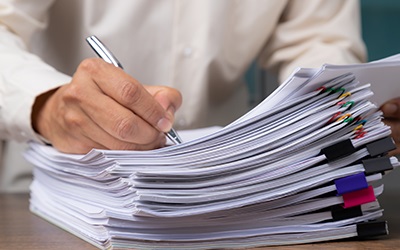I am studying in the third year of the State University of Economics and Technology.I specialize in contractual, economic and corporate law, in particular, I provide consultations and write articles.
The legislation obliges taxpayers, when obligations arise, to prepare tax invoices in electronic form and register them in the appropriate register. In general, a tax invoice is a document used by VAT payers for the purpose of accounting for tax liability and tax credit. Along with this, businesses often encounter blocking of invoices or adjustment calculations, that is, situations when the State Tax Service stops their registration for certain reasons, or unreasonably. The result of such an action on the part of the regulatory authority is the emergence of difficulties and obstacles in the further activities of the taxpayer. As for the most common reasons for blocking, the following can be distinguished: the absence of a product code in the data table, the business meeting risk criteria, or meeting such criteria for financial transactions. The decision to refuse registration is made by a regional-level commission.
Written explanation as the first step to unlocking:
If the registration of a tax invoice or calculation of an adjustment has been stopped, the taxpayer has the opportunity to submit written explanations to the commission that made such a decision in order to confirm the information contained in the invoice or calculation. For the same purpose, the payer can also send: copies of concluded contracts, powers of attorney, acts of the governing body, primary and settlement documents and documents confirming the conformity of products. The legislation provides a deadline for submitting explanations of 365 days from the date the tax liability arises. The explanation along with the documentation can be sent electronically. Within five days from the date of receipt of the documents, the commission conducts a review, analyzes what was sent and makes a decision: registers, contacts the taxpayer to obtain additional explanations, or refuses registration.
Administrative appeal procedure:
In the event of an unreasonable refusal to register an invoice, the taxpayer has the right to pre-trial resolution of the dispute in the form of an administrative appeal. There is no point in delaying the appeal, because to do this the taxpayer has 10 days from the date of receipt of the refusal decision. The complaint must contain substantive explanations, demands and relevant supporting documents. You can send a complaint in writing or electronically to a higher-level supervisory authority. Within 10 days from the date of receipt of the complaint, the supervisory authority must make a decision. If within the specified period a decision based on the results of consideration of the complaint is not received by the complainant, then the complaint will be considered automatically satisfied in his favor.
The judicial procedure for appealing a refusal to register tax invoices:
If the dispute cannot be resolved pre-trial, the taxpayer has the opportunity to go to court. Such cases will be considered through administrative proceedings. It is necessary to draw up a claim that briefly describes the circumstances of the case, defines the claims, indicates the circumstances by which such claims are justified, lists the means of pre-trial settlement of the dispute, and provides a list of evidence. All arguments and statements should not contain emotional overtones, but, on the contrary, be clearly structured, supported by evidence and comply with the norms of current legislation. As for the limitation period, if the plaintiff has filed an administrative appeal, then he is given a period of three months to further appeal to the court. If the taxpayer bypassed the pre-trial settlement of the dispute, that is, did not file complaints, then the period for going to court will be 6 months from the date of receipt of the decision to refuse registration of the invoice.
Legal services for business in unblocking a tax invoice:
A lawyer for business, in the event of disputes with a regulatory authority, will help not only effectively implement each of the steps described above, but also save the taxpayer’s money and time. A business lawyer will choose a reliable way to restore violated rights by conducting a preliminary legal analysis of the situation and consulting the client. Preparing messages, complaints, drawing up claims, defending a business protection - these are the main tasks of legal defense of a business that a lawyer will perform when resolving this case.
































